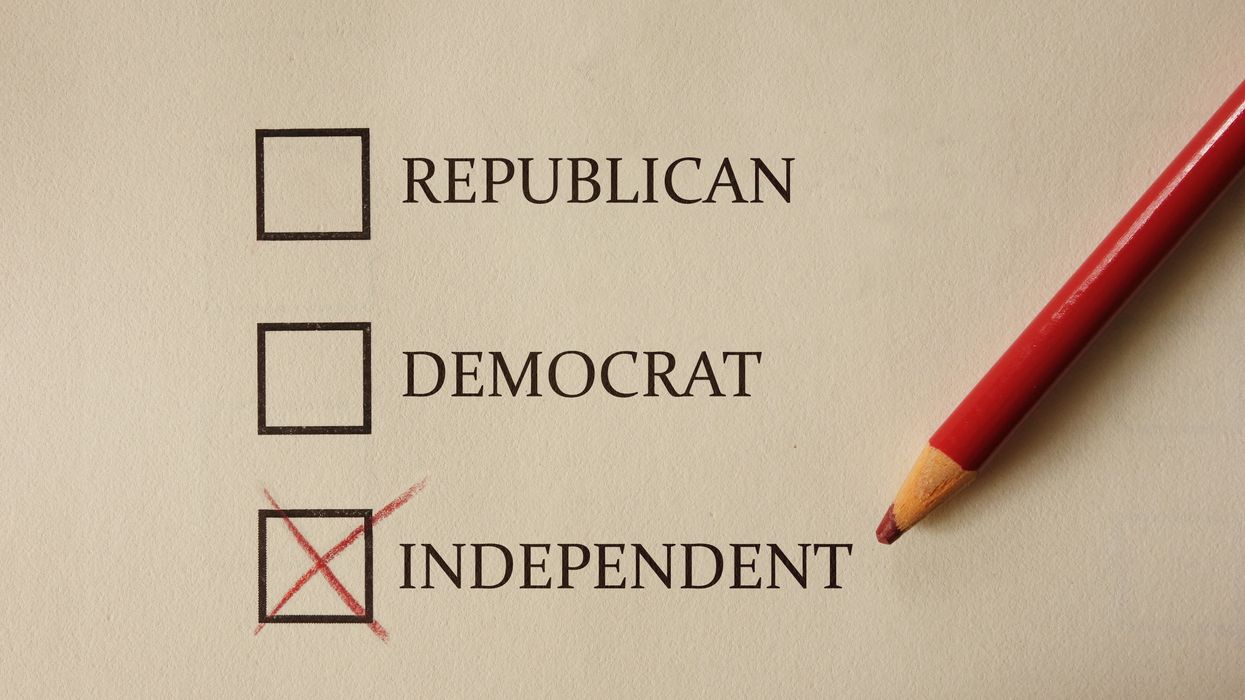Fisher is senior director of policy and partnerships for Unite America. Macomber is research manager for Unite America .
Whichever party wins independent voters will win the presidency and other key races this fall. A poll we at Unite America commissioned earlier this year provides clues for how Democrats and Republicans can appeal to these swing voters — including embracing their right to participate in all primary elections. Nearly 90 percent of independent voters from closed primary states support opening primaries, and nearly 60 percent said they would be more likely to vote for a party that pledged to support their right to vote in primaries.
A new bipartisan bill in Congress gives the parties a golden opportunity to do just that. The Let America Vote Act would immediately end closed primaries for congressional and presidential elections, while also providing financial incentives to states that enfranchise independents in state and local primaries. Currently, 15 states have closed congressional primaries, and 22 states have closed presidential primaries.
If passed, the Let America Vote Act would grant 23.5 million independent voters the same voting rights as registered Republicans and Democrats. According to Gallup’s most recent polling, a record high 51 percent of American adults identify as independents — more than the two major parties combined.
Simply providing lip service to a new bill is not enough, however. The two major parties must also understand why a rapidly growing share of voters choose to be independent in the first place. According to our first-of-its-kind report and poll of independents from closed primary states, there are four key reasons they do not affiliate with either party.
- Independent voters are “independent thinkers.” Seventy percent said they “prefer to assess each candidate individually, rather than by their party affiliation,” while 68 percent said they “think for myself, independent of what parties and candidates tell me to think.”
In response to an open-ended question, a 68-year-old man from Nevada echoed this sentiment: “I'm an independent thinker and willing to vote for anyone who reflects my beliefs.” - Independents’ policy preferences do not align with the Democratic or Republican platforms. When asked which party they trust more to handle the pressing issues facing the country, independents were split. At least 60 percent placed more trust in the Republicans to handle immigration, the economy, and public safety, while the same share favored the Democrats on health care, abortion and climate issues.
To illustrate how independents’ beliefs are split between the parties, consider this comment from a 79-year-old woman from Idaho: “Two main issues motivate me — 1. gun rights. 2. reproductive freedom. Neither party promotes both.” - Independents believe the political system is broken. Nearly 70 percent of respondents said they believe the “political parties are too influenced by corporate interests or lobbyists,” while 65 percent said they believe “the political system is corrupt and needs significant reform.” A startling 91 percent agreedthat “Both major parties care more about serving their special interests than people like me.”
A 39-year-old man from Utah underscored this feeling: “Politics are poison. My trust for the political system has soured with[in] the last 8 years. The voice of the people is very rarely heard and politicians are in the pockets of other businesses or affiliations.”
- Independents are disillusioned with the two major parties. Only 22 percent of respondents have a favorable view of the Republican Party, and 21 percent have a favorable opinion of the Democratic Party. Seventy percent also said that they believe “both parties are too ideologically extreme.”
These beliefs were clearly expressed by a 67-year-old woman from Idaho: “I consider both parties off track. We need to get back to the middle ground. I am sick and tired of being whiplashed around by the extremists of both parties.”
In sum, independents are persuadable voters with nuanced policy positions who are frustrated by both the political system and the two parties that lead it. Passing the Let America Vote Act and opening all states’ primaries to independents would incentivize members of Congress to represent the views of independent voters while in office, and not allow them to just be an afterthought during election season. Without reform, though, the major parties will likely continue to struggle to appeal to independents, and voters will continue to abandon the parties.



















